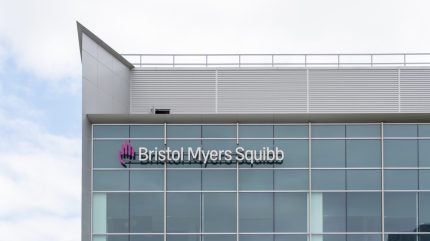
US-based pharmaceutical company Bristol Myers Squibb (BMS) has reported results from the POETYK PSO long-term extension (LTE) trial of its drug candidate Sotyktu (deucravacitinib) for plaque psoriasis.
The LTE trial programme included the 52-week POETYK PSO-1 and POETYK PSO-2 trials, in which 1,221 subjects were given 6mg of open-label Sotyktu once a day.

Discover B2B Marketing That Performs
Combine business intelligence and editorial excellence to reach engaged professionals across 36 leading media platforms.
According to the recent data, Sotyktu maintained a safety profile through more than 5,000 patient-years of exposure in the trial, with no new risks being found.
The drug showed consistent safety and durable response rates in adult patients with moderate-to-severe plaque psoriasis over five years.
Patients who were continuously treated with the therapy exhibited stable clinical response rates from the first to the fifth year, including key metrics such as Psoriasis Area and Severity Index (PASI) 75, PASI 90, and static Physician’s Global Assessment (sPGA) 0/1.
The efficacy assessment included 513 subjects who received the treatment from day one and transitioned to the POETYK PSO-LTE trial while the safety analysis comprised 1,519 patients who were given at least one dose during the trials.

US Tariffs are shifting - will you react or anticipate?
Don’t let policy changes catch you off guard. Stay proactive with real-time data and expert analysis.
By GlobalDataSotyktu is an oral, selective, allosteric tyrosine kinase 2 (TYK2) inhibitor that selectively targets TYK2, inhibiting the signalling of key cytokines involved in the pathogenesis of multiple immune-mediated diseases.
The asset is currently approved in several countries for treating adults with moderate-to-severe plaque psoriasis.
BMS’ early and late development immunology vice-president and senior global programme lead Edgar Charles said: “These positive five-year results build upon the established profile of Sotyktu, a first-in-class TYK2 inhibitor, as a transformative oral treatment for psoriasis.
“As the leader in TYK2 innovation, we continue our relentless pursuit of bold science to elevate new standards of care for the patients we serve.”
BMS recently reported that its multi-centre Phase II TRANSCEND FL trial of Breyanzi met its primary endpoint in adults with relapsed or refractory indolent B-cell non-Hodgkin lymphoma.





